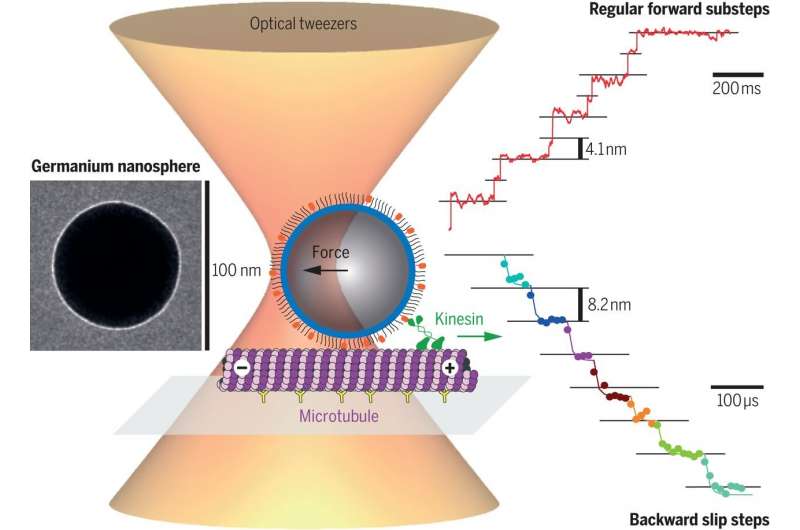Motor proteins generate the forces for essential
mechanical processes in our body. On a scale of nanometers—a
millionth of a millimeter—motor proteins, for example, power our
muscles or transport material within our cells. Such movements,
invisible to the naked eye, can be made visible by Erik Schäffer:
the professor of Cellular Nanoscience at the University of Tübingen
develops special force microscopes, so-called optical tweezers, to
measure how these molecular machines work mechanically. His team at
the Center for Plant Molecular Biology has now improved the
technology. Special probes, germanium nanospheres, enable a higher
resolution of displacements and forces that the motors generate.
The results have been published in the journal
Science.



